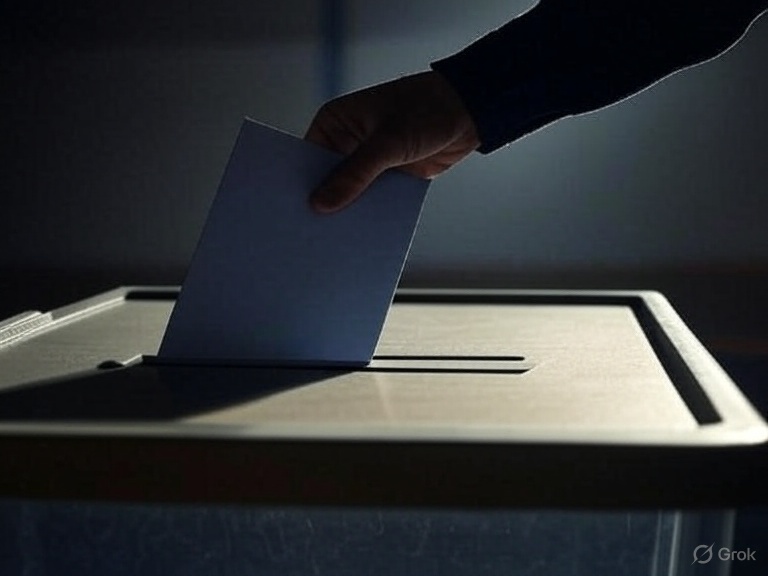The Big Picture
The Department of Justice is asking Nevada to hand over its voter roll data. This request comes after President Trump’s March executive order that aimed to fix problems with our election system. The order wants proof of citizenship to vote and mail ballots to arrive by Election Day.
Think of it like this: when you go to buy cold medicine at the pharmacy, they ask for your ID. The government wants the same basic check for something as important as voting.
What’s Happening in Nevada
Nevada got two requests from the DOJ. The first asks for information about voters who were targeted by Trump’s executive order. The second wants Nevada’s complete voter registration list, which is already public record anyway.
The DOJ also wants to know how Nevada removes bad voters from their rolls. They want to see what security measures protect the voter lists. And they want to understand how Nevada checks if voter applications are real.
Nevada’s Secretary of State, Cisco Aguilar, calls this “federal overreach.” But here’s the thing – the DOJ has legal authority to see most of this information under a 2002 law called the Help America Vote Act.
Why This Matters to Conservatives
For years, conservatives have worried about election integrity. We believe every legal vote should count, and illegal votes should not count at all. It’s that simple.
Before the 2024 election, the Republican National Committee filed four lawsuits about Nevada’s voter rolls and mail ballot laws. Three were dismissed. One is still going. Two are being appealed.
Conservative groups also challenged over 30,000 voter registrations in Nevada. They filed three lawsuits to force investigations into these challenges. But those lawsuits were eventually withdrawn.
This shows the uphill battle conservatives face. We raise concerns about election security, but the system often blocks us from getting answers.
The Broader Fight
Republicans have long said Nevada’s election system has problems. They point to issues with mail voting and worry that non-citizens are voting illegally. State officials defend their system and say it’s secure.
But here’s what we know: non-citizen voting is already illegal. It gets prosecuted when caught. The question is whether we’re catching all the problems.
Trump’s executive order tries to fix these concerns. It requires proof of citizenship to vote. It wants all mail ballots to arrive by Election Day, not days later. These seem like common-sense reforms.
Critics say the order makes “exaggerated claims of mass voter fraud.” They argue the system already works fine. But if the system works so well, why not prove it with transparency?
What the Courts Are Saying
Courts have temporarily blocked key parts of Trump’s executive order. This is frustrating for conservatives who want immediate action on election security.
But the DOJ’s request for voter information has stronger legal ground. The 2002 Help America Vote Act gives federal officials the right to see much of this data. States took federal money to build their voter systems. Now they need to show how those systems work.
Looking Ahead
This Nevada request is likely just the beginning. The DOJ probably sent similar requests to other states. We might see a nationwide push to examine voter rolls and election procedures.
For conservatives, this is good news. We’ve been asking for this kind of review for years. Finally, federal officials are taking election integrity seriously.
But we shouldn’t expect quick results. Legal challenges will continue. Democratic officials will resist. The media will criticize every move.
The fight for election integrity is a marathon, not a sprint. But this DOJ request shows we’re finally making progress. After years of being told our concerns don’t matter, federal officials are taking action.
Nevada’s response will tell us a lot about whether states will cooperate or resist. Either way, the spotlight is now on election security. And that’s exactly where conservatives want it.
This article was written with the assistance of AI. Please verify information and consult additional sources as needed.



